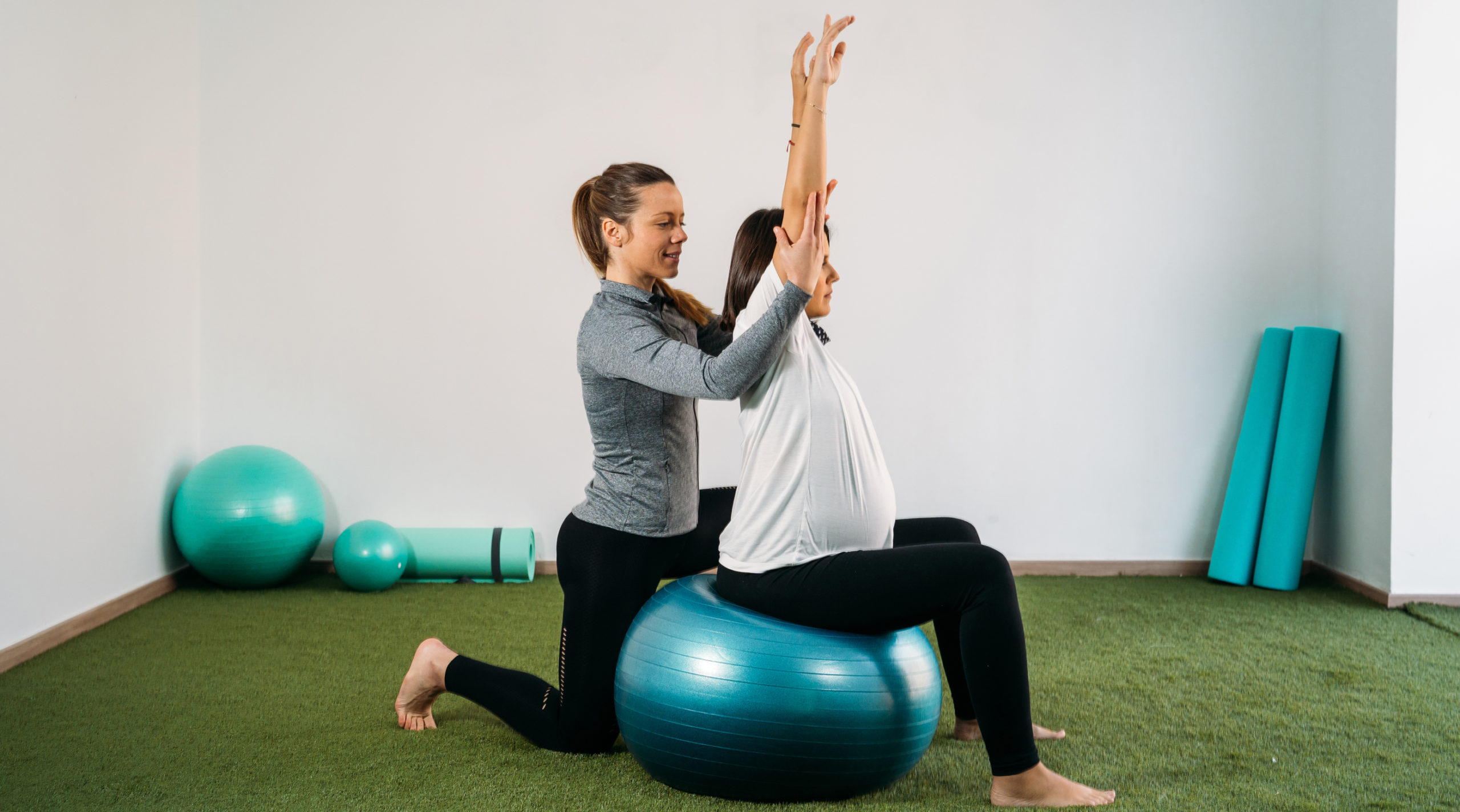
The American Pregnancy Association is very clear – staying active during pregnancy is important on several levels and for a number of health-promoting reasons.
But what “staying active” looks like for one mom-to-be may be very different than what is best for another mom-to-be.
Just as being pregnant affects every body differently, so too are there certain contraindications that can limit what kind of exercise or sport is safe to do while you are pregnant.
In this article, learn about seven key reasons you should plan to stay active during your pregnancy. Also learn about how to make sure the exercise you do is safe for you and your baby.
Talk With Your Health Provider Before Starting a New Exercise Regimen
The U.S. Office of Disease Prevention and Healthcare Promotion emphasizes that you should always talk with your doctor before starting an exercise program during pregnancy.
This doesn’t mean you shouldn’t exercise – far from it. It just means you need to first rule out any medical reasons that may indicate it is smart to limit doing certain types of exercise while you are pregnant.
Also, the types of exercises it is safe to do during pregnancy typically relate to the ways you stayed active before you got pregnant.
A common example is jogging. If you jogged regularly before you got pregnant, your doctor may clear you to continue jogging during pregnancy. However, a non-jogger may be advised not to take up jogging after becoming pregnant.
As the American College of Obstetricians and Gynecologists emphasizes, it may also at times be necessary to modify certain exercises to factor in body changes that happen as pregnancy progresses.
For safety, talk with your doctor first before adding new exercises or sports to your pregnancy fitness routine.
How Much Exercise Should You Get While Pregnant?
Scientific American outlines the most up-to-date exercise recommendations for expectant moms-to-be.
– Aim for 150 minutes of exercise per week.
– Exercise should be of moderate intensity.
– Exercise should incorporate both aerobic (cardiovascular) and strength training.
– Exercise should be spread out over three or more days during the week.
– Exercise can be started at any time during pregnancy if your doctor agrees.
7 Reasons to Stay Active While You Are Pregnant
Here are seven compelling reasons your body (and your baby) will thank you for staying active while you are pregnant.
1. Exercise during pregnancy prevents excess weight gain in a healthy way.
According to the U.S. Institute of Medicine (IOM), weight gain during pregnancy is normal and to be expected.
Here, it is vital to understand what amount of weight gain is healthy and desirable for your BMI (body mass index) and pre-pregnancy weight. The IOM has issued specific worldwide guidelines that reflect how dangerous it can be to be underweight while you are pregnant. Specifically, you risk your baby being pre-term and underweight.
Exercise during pregnancy is not just vital for staying strong, sleeping well, reducing pain and detoxifying your body. It is also the best way to keep within your doctor-recommended weight gain parameters without sacrificing any of the nutrition or hydration your baby needs to grow.
2. Exercise can reduce body discomfort as pregnancy progresses.
As WebMD points out, exercising while you are pregnant can help to ease the myriad of aches and pains that often arise as your baby grows and your body changes.
Exercise can also help promote good posture and stamina as your center of balance shifts during the later stages of your pregnancy.
3. Exercising while you are pregnant can prepare your body for delivery.
Medical News Today points out that exercise during pregnancy can help prepare your entire body for what is yet to come: delivering your baby.
There are actually certain specific exercises that are recommended by the American College of Obstetricians and Gynecologists (ACOG) to help you prepare for a natural childbirth.
Recommended exercises include squatting and pelvic tilts, kegels, swimming and walking. You may prefer different exercises, which the ACOG says is fine as long as the activities you choose do not put you in danger of being thrown off balance and falling.
By taking time to increase your stamina and endurance, strengthen your muscles and improve your balance, you are much likelier to have an easier delivery and to regain your strength more quickly after delivery.
4. Exercise during pregnancy can increase the quality of your sleep.
The National Sleep Foundation states that a whopping 78 percent of pregnant women report having sleep disturbances during their pregnancy.
As well, women in their first and third trimester of pregnancy report having greater difficulty getting sufficient sleep and feeling more daytime fatigue than at other times in their life.
According to the Journal of Behavioral Sleep Medicine, including exercise in your day while you are pregnant can promote improved sleep continuity.
Pregnant women who exercised during the research study reported better sleep than women who remained sedentary. The research also states that this is especially true in early pregnancy but remains valid throughout your pregnancy.
To get the most restful sleep results from exercising during pregnancy, do your best to time your exercise sessions to end three to four hours before you plan to retire for the night. If you want to do some gentle yoga or stretches closer to bedtime, experts say this is perfectly okay – just pay attention to whether it impacts your sleep.
5. Exercise can reduce health risks specific to being pregnant.
Research published through the National Institutes of Health (NIH) highlights the risks of choosing a sedentary lifestyle while you are pregnant.
Here are some examples from the research.
When you stay fit and active during pregnancy, you have a lower risk of developing each of the following serious pregnancy-related health issues (and others):
– Gestational diabetes.
– Deep vein thrombosis.
– Incontinence.
– Lower back and pelvic pain.
– Larger birthweight (macrosomia).
– Gestational high blood pressure (preeclampsia).
– Need for a caesarean delivery.
6. Exercise during pregnancy can give you more energy naturally.
One of the most difficult challenges many women face after becoming pregnant is how to keep energy levels up. Many women continue working throughout pregnancy and also have other demanding responsibilities after work ends.
But as Healthline points out, healthcare providers typically recommend limiting or avoiding intake of caffeine during pregnancy. The research shows it takes longer to metabolize caffeine through and out of your body when you are pregnant.
Taking in more than 200mg per day is also linked to a potential increased risk of miscarriage throughout pregnancy. For these and other reasons, you may choose to limit caffeine intake or abstain entirely from caffeine while you are pregnant.
Yet fatigue is also linked to potential pregnancy health risks, including caesarean delivery, reduced level of perceived quality of life and depression during pregnancy.
So you really do want to find a way to keep your energy levels within range of what you had before you became pregnant – for your own sake and that of your baby. But with caffeine off limits or in very short supply, what is available that will be safe for your baby, safe for you and helpful in boosting energy?
The answer comes from a surprising source: exercise can be a reliable way to boost your energy levels while you are pregnant.
Research published by the Journal of Psychosomatic Obstetrics & Gynecology shows that exercise can be an effective tool to boost energy and reduce feelings of fatigue. Resistance-based exercise of moderate intensity can be especially beneficial as your pregnancy progresses.
7. Exercise can help your post-pregnancy body bounce back faster.
Parents Online makes a compelling argument for making time to exercise while you are pregnant: it can help you regain your pre-pregnancy body faster after you deliver your baby.
New moms who had maintained a fitness routine during their pregnancy experienced a quicker return to their former weight and strength after delivery than did moms who had a more sedentary pregnancy. They also gained, on average, seven pounds less than did women who remained sedentary during their pregnancy.
There are benefits for your baby as well, as Parents online points out. Your baby may also be born with a healthier ratio of body fat and be less likely to struggle with weight gain throughout life.
Perhaps most interestingly, the gains you make from exercising regularly while you are carrying your unborn child will follow you both throughout life. You can expect to stay fitter all throughout middle age and your child may grow up to have greater athletic potential and ability.
What do these seven reasons all have in common? They all showcase the benefits of regular, moderate exercise during and after pregnancy. You get benefits and your baby also gets benefits that start immediately and continue throughout your life together.
While it can feel challenging to find time and energy to exercise while you are pregnant, you don’t have to get fancy or even go out of your way to add in exercise.
Get a Personalized Exercise Prescription Just for You!
WebExercises is an online platform with more than 3,500 different exercises and fitness routines tailored to every need and interest. With a little help from WebExercises, you can be on your way to a straighter spine!
Contact your health care provider for a WebExercises prescription that is personalized and tailored to your specific health condition and fitness goals. A WebExercises prescription can get your fitness walk program off on the right foot so you are looking and feeling your best quickly.
The WebExercises Story: Created by Clinicians for Clinicians
We understand the challenges that clinicians face on a daily basis: lack of patient engagement, high drop-out rates, time-crunched clinicians. We developed a solution for you and your patients that provides you with great clinical education, efficient and evidence-based exercise programming, and an engaging patient experience . To find out more how WebExercises can improve your practice call us 866-411-4825 or visit webexercises.com.

![Top 10 Reasons to Stay Active as You Age<h2>[For Patients]</h2>](https://blog.webexercises.com/wp-content/uploads/2019/11/10-reasons-to-stay-active-blog.jpg)